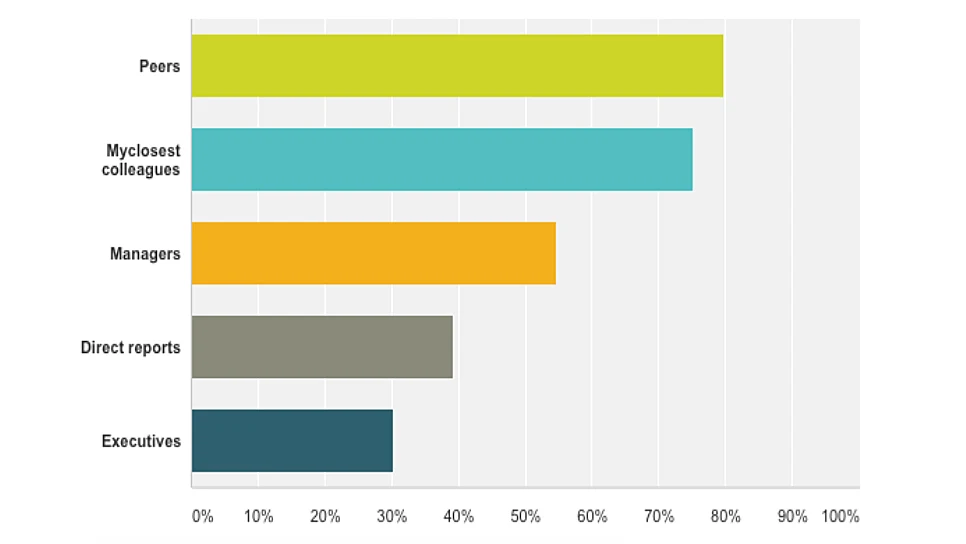Do you not give a sh*t when your coworkers swear? Or does it drive you f*cking crazy?
A recent survey of 1,542 American workers by Wrike, a project management software company, found that 57% of respondents admit to swearing in the workplace. Of those who do, 93% have colleagues that also openly swear in the workplace, compared to 63% of those who censor themselves.
The study also found that 66% of millennials (aged 18-29) openly swear at work, compared to only 54% of their baby boomer and gen X colleagues (aged 30 and over). Women are also more likely to report dropping f-bombs at the office, with 60% admitting to swearing at work, compared with 55% of men. Men who do use profanity around the office, however, tend to do so at a higher frequency than their female colleagues.
The swearers of the workplace at least know to censor themselves in certain crowds, according to the study. Of those who are comfortable with swearing: 80% do so in front of peers, while only 55% will swear in front of a manager, and just 30% will swear in front of an executive. (The study does not mention of how often superiors are cursed behind their backs.) Only 2% of respondents admit to swearing frequently in front of clients, with 28% saving it for special occasions and 62% avoiding harsh language in front of clients entirely.

If you have sensitive ears you may want to avoid accepting a position in the health care industry, where 64% of employees admit to swearing in the workplace, with 45% doing so on a regular or daily basis. The next rudest workplace, according to the Wrike study, is finance, where 62% swear in the office, followed by 61% of professional services employees, 59% of tech workers, 53% of government staff, and 48% of those who work in education.
While it may make some uncomfortable, research conducted by the University of East Anglia in Norwich suggests that swearing at work reduces stress and boosts team spirit.
Swearing isn’t also necessarily a sign of poor vocabulary or intelligence. In fact, research suggests the very opposite. According to a study published earlier this year by Language Sciences, the use of taboo language is positively correlated with overall verbal fluency.
“It’s part of your emotional intelligence to know how and when to use these words. If you’re thinking about it from a moral perspective, you’re missing how common and normal it is. Everybody knows this language,” says Dr. Timothy Jay of the Department of Psychology at Massachusetts College Of Liberal Arts and author of the study, told Medical Daily.
But be careful who you swear around. The Wrike study revealed that of the 43% of those who do not use profane language in the workplace, 36% are bothered when others drop the F-bomb, and 20% would consider filling an official complaint in regards to their colleagues’ language. On the other hand, 33% of respondents would not consider a position at a workplace that strictly banned swearing, so you can’t f*cking win either way.
Recognize your brand’s excellence by applying to this year’s Brands That Matter Awards before the early-rate deadline, May 3.
